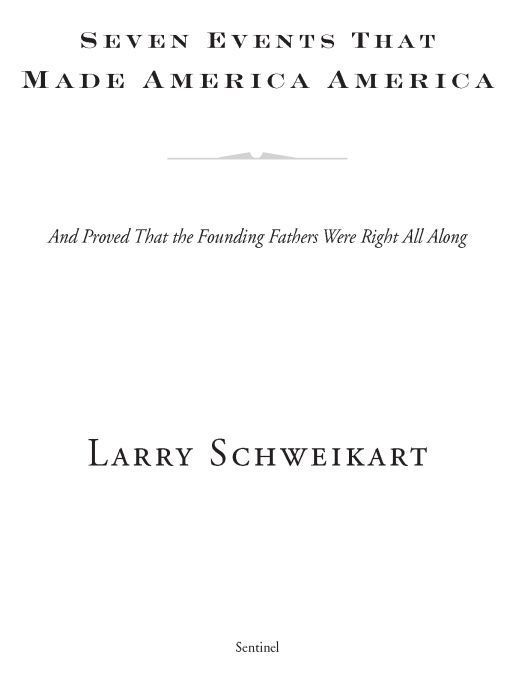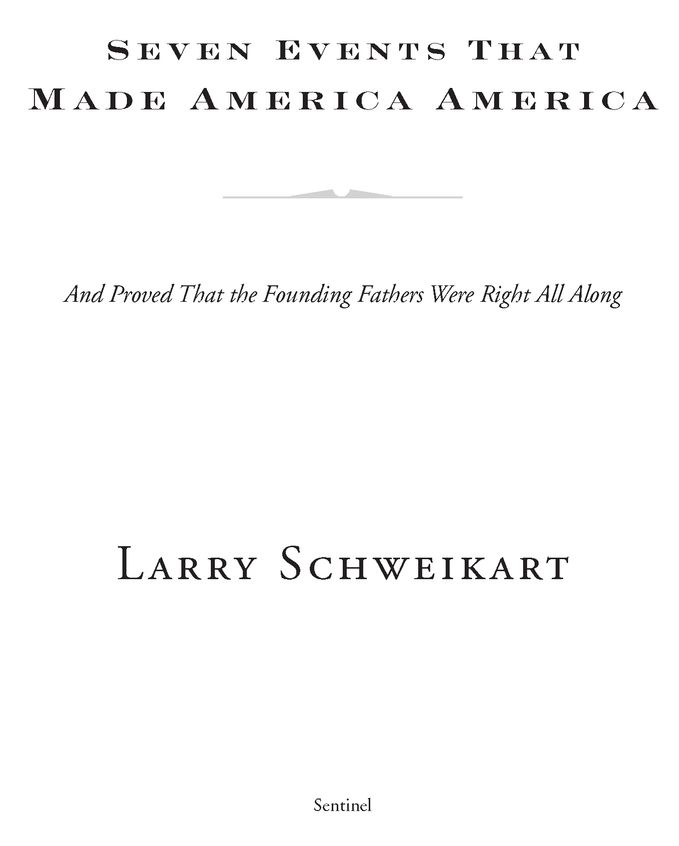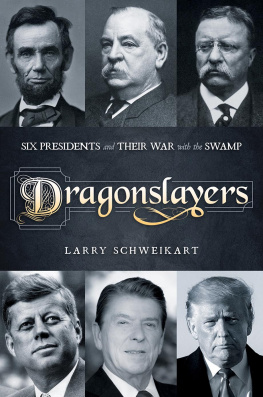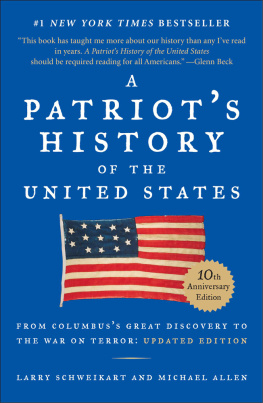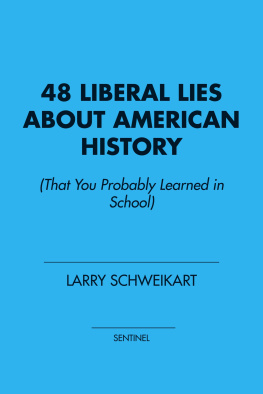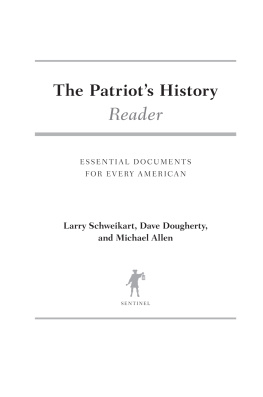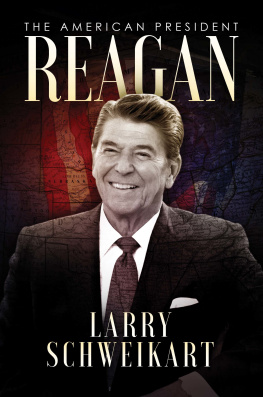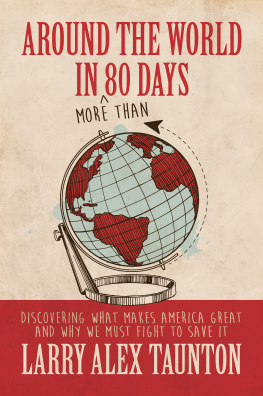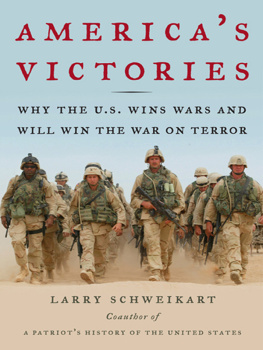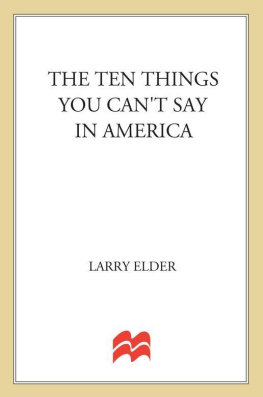Table of Contents
ALSO BY LARRY SCHWEIKART
48 Liberal Lies About American History
Americas Victories
A Patriots History of the United States
To rock and rollers, here and abroad, now and then.
INTRODUCTION
You dont have to be an American history expert to identify certain critical events in our past that shaped our country. Pearl Harbor, the D-Day invasion, 9/11, the assassinations of Lincoln and Kennedy, the Great Depression, important court decisions such as Brown v. Board of Educationthese are just a few of the milestones in our nations history that likely spring to most peoples memory. On the other hand, not all important changes in our past have unfolded in a single day, but rather were the results of profound unresolved issues (slavery and the Civil War), a slow change in culture (the status of women in the twentieth century), or the response to long-standing international tensions (the Cold War). No one can point to a particular where were you? moment with such transformations, as they reflected slow, but important, incremental changes.
The most difficultand interestingparts of history to understand are those that spark deep and significant changes but are not necessarily obvious. That is the purpose of this bookto explore and explain some of these forgotten or unheralded moments in an effort to show the profound way in which they influence our history. Yet there is a second purpose in this book, namely, to examine the seven events I have chosen in light of the Founders vision for America. How would George Washington, James Madison, Thomas Jefferson, and other Founders have interpreted these events? Did the event confirm the vision of the Founders or constitute a departure from their hopes? In short, would the Founders have approved or disapproved of the actions that followed from the event itself? Most important, what can we learn from these events of our past to help build a better future and a stronger America?
For example, Madison wrote with mixed emotions about factions, or partisan strife, disdaining it (as did Washington), yet acknowledging it as unavoidable and inherent in human nature. Ambition should counter ambition, he observed. However, he likely would have been appalled at Martin Van Burens invention of a new, national party machinery, which evoked loyalty by rewarding supporters with jobs in both the party and the government. The result was something none of the Founders desiredan ever-growing federal government. Nor would Madison, having drafted many of the sections of the Constitution relating to a federal judiciary, have dreamed that the United States Supreme Court would seek to make itself the arbiter of personhood itself. It would not have surprised Madison to see that, by wading into such a morass in the case of the slave Dred Scott, the Supreme Court not only mucked up the central object of the case itself but managed to unintentionally start a financial panic as well.
On the other hand, the events following the Johnstown Flood, wherein ordinary private citizens took it upon themselves to provide aid and disaster relief and did so with heroism and efficiency, would have surprised none of the Founding Fathers. Indeed, they would have expected no less from the people, and would not have been surprised at the ineptitude and folly seen in Hurricane Katrina, during which the ill-prepared and ill-equipped federal government stepped in to help. Of course, even the Founding Fathers might have supported federal disaster relief in a matter of national security, but no logical rationale could justify the governments policing of Americans diets. Nonetheless, this is exactly what happened after President Dwight Eisenhower suffered a heart attack, and the government, in a misguided campaign against heart disease, began advising Americans on what to eat. But this was only the beginning, with the war on meat soon to evolve into a war on sugar, salt, fats, and virtually any other food the government deemed unhealthy. To say the Founders would have been appalled is an understatement: their (and our) Revolution began when the British tried to dictate what tea we could drink!
Ironically, when it comes to something as foreign (or so it seems) to the Founding Fathers as rock and roll, a much different story unfolds. In the early 1960s, American rock was languishing, circling in the water until the Beatles arrived on Ed Sullivans stage. Suddenly, thousands of American musicians found their dreams anew, taking the music of the British Invasion and blasting out new, original, andas it turned outworld-changing sounds. Americas new rock rolled through the Iron Curtaindespite several attempts to stop itand, in the process, helped defeat communism. It did so without a dime of public support, reaffirming the Founders commitment to ensuring that individuals, not government, remain the source of artistic expression.
Of course, the man most credited with bringing down the Evil Empire, Ronald Reagan, certainly agreed with that principle. But Reagans role in the demise of communismhis greatest and enduring achievementwas marred by a significant misjudgment, namely, the deployment of marines as peacekeepers in Lebanon. When, months later, a terrorist truck bomb killed more than two hundred of the marines, Reagan withdrew them, but this was not enough to stop a new worldwide threat that was only beginning to be understood: radical Islamic jihad. Though the Founders might not have perceived this threat any quicker than the Gipper, they would have warned Reagan about the futility of peacekeeping missions.
Washington, John Adams, and Thomas Jefferson would have been more familiar with another modern phenomenonbias in the news. But, unlike the media conglomerates of today, the newspapers and broadsides that the Founders read were relatively impotent, and almost always countered by a rival paper that took up the other side of any issue. By 2008, however, the mainstream national media had become almost entirely partisan and Democratic, so much so that if it were acting as a government-run propaganda machine, it would espouse almost the identical viewpoints. The pliant and malleable television and print coverage of candidate-turned-president Barack Obama has made a mockery out of objective news coverage. What did the Founders see as the role of a free press? Why were they so insistent about protecting political speech in the First Amendment?
These seven events allow us to look at oft-overlooked points in our history not only from the perspective of their significance, but also from the standpoint of their conformity to the Founders visions, hopes, and dreams for this nation. In each case, I think it is clear that it is not always the declaration of war, inspirational speech, famous piece of legislation, or other well-known event we learned about in history class that has had the most long-lasting impact on our lives.
Larry Schweikart
Centerville, Ohio
MARTIN VAN BUREN HAS A NIGHTMARE AND BIG GOVERNMENT IS BORN... IN THE 1820S!

